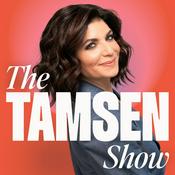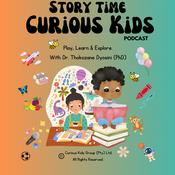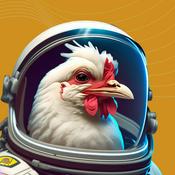109 episodes

Dr. Connor Sible: Residue Management and Corn Root Architecture | Ep. 108
2026/1/06 | 26 mins.
In this episode of The Crop Science Podcast Show, Dr. Connor Sible from the University of Illinois Urbana-Champaign talks about managing residue and understanding corn root architecture in today’s high-yield systems. He shares how farmers can balance tillage, biological tools, and conservation practices, and explains how root traits affect nutrient use and drought tolerance. Get practical, research-based insights to fine-tune your corn management strategies. Listen now on all major platforms!"Wider angle roots are more responsive to split-applied nitrogen because they’re positioned right where nutrients accumulate."Meet the guest: Dr. Connor Sible is a Research Assistant Professor in Crop Sciences at the University of Illinois Urbana-Champaign. His research focuses on corn and soybean production systems, studying how management practices influence crop growth, development, and yield. His current work explores residue management, corn root physiology, and nutrient efficiency across production environments. Liked this one? Don’t stop now — Here’s what we think you’ll love!What you will learn:(00:00) Highlight(01:14) Introduction(04:36) Residue management(07:40) Conservation tillage balance(10:44) Strip tillage systems(13:09) Root system variation(18:04) Hybrid influence(22:43) Final three questionsThe Crop Science Podcast Show is trusted and supported by innovative companies like:- KWS𝗟𝗶𝘀𝘁𝗲𝗻 𝗼𝗻 𝗔𝗽𝗽𝗹𝗲 𝗣𝗼𝗱𝗰𝗮𝘀𝘁𝘀, 𝗦𝗽𝗼𝘁𝗶𝗳𝘆 𝗼𝗿 𝗮𝗻𝘆 𝗺𝗮𝗷𝗼𝗿 𝗽𝗹𝗮𝘁𝗳𝗼𝗿𝗺.Website: The Crop Science Podcast ShowInstagram: The Crop Science Podcast ShowLinkedIn: The Crop Science Podcast Show

Dr. Jian Jin: Advances in Crop Technologies | Ep. 107
2025/12/30 | 44 mins.
In this episode of The Crop Science Podcast Show, Dr. Jian Jin from Purdue University explains how engineering, automation, and data-driven design are redefining sustainability and performance in modern agriculture. He explores how hyperspectral imaging, AI-based modeling, and robotic sensing systems contribute to crop management and resource efficiency in the field. Discover how innovation and circular thinking are building a more resilient and precise crop production system. Listen now on all major platforms!"Combining remote and proximal sensing creates a hybrid system that balances coverage, accuracy, and reliability in crop monitoring."Meet the guest: Dr. Jian Jin is an Associate Professor at Purdue University and President of LeafSpec LLC, specializing in agricultural and biological engineering. His research integrates imaging technologies, artificial intelligence, and automation to enhance plant phenotyping and precision agriculture.Liked this one? Don’t stop now — Here’s what we think you’ll love!What you will learn:(00:00) Highlight(01:11) Introduction(03:55) Plant sensor lab(05:47) Optical sensor tech(09:40) Hyperspectral modeling(15:34) Industry applications(28:01) Scaling and automation(38:11) Final three questionsThe Crop Science Podcast Show is trusted and supported by innovative companies like:- KWS𝗟𝗶𝘀𝘁𝗲𝗻 𝗼𝗻 𝗔𝗽𝗽𝗹𝗲 𝗣𝗼𝗱𝗰𝗮𝘀𝘁𝘀, 𝗦𝗽𝗼𝘁𝗶𝗳𝘆 𝗼𝗿 𝗮𝗻𝘆 𝗺𝗮𝗷𝗼𝗿 𝗽𝗹𝗮𝘁𝗳𝗼𝗿𝗺.Website: The Crop Science Podcast ShowInstagram: The Crop Science Podcast ShowLinkedIn: The Crop Science Podcast Show

Dr. Prasanta Subudhi: Sustainability of Rice Farming | Ep. 106
2025/12/23 | 29 mins.
In this episode of The Crop Science Podcast Show, Dr. Prasanta Subudhi from Louisiana State University explores the current and future challenges in rice production under climate stress. He shares research on abiotic stress tolerance, sustainability practices, and the critical role of genetic diversity in building climate-resilient crops. Learn why rice breeding is key to food security. Listen now on all major platforms!"Even a one-degree increase in temperature can reduce rice yields by nearly 10%, affecting both productivity and grain quality."Meet the guest: Dr. Prasanta K. Subudhi is a Professor in the School of Plant, Environmental, and Soil Sciences at Louisiana State University Agricultural Center. With over 30 years of global research experience, his work focuses on developing climate-resilient rice varieties by applying advanced breeding and genomics tools. His expertise includes abiotic stress tolerance, nitrogen efficiency, and sustainability in rice systems.Liked this one? Don’t stop now — Here’s what we think you’ll love!What you will learn:(00:00) Highlight(01:02) Introduction(07:05) Abiotic stress tolerance(09:01) Salinity and drought(13:37) Cold tolerance(16:22) Main stressors(24:19) Future of rice farming(34:06) Closing thoughtsThe Crop Science Podcast Show is trusted and supported by innovative companies like:- KWS𝗟𝗶𝘀𝘁𝗲𝗻 𝗼𝗻 𝗔𝗽𝗽𝗹𝗲 𝗣𝗼𝗱𝗰𝗮𝘀𝘁𝘀, 𝗦𝗽𝗼𝘁𝗶𝗳𝘆 𝗼𝗿 𝗮𝗻𝘆 𝗺𝗮𝗷𝗼𝗿 𝗽𝗹𝗮𝘁𝗳𝗼𝗿𝗺.Website: The Crop Science Podcast ShowInstagram: The Crop Science Podcast ShowLinkedIn: The Crop Science Podcast Show

Jonathan LaPorte: Grain Market Trends | Ep. 105
2025/12/16 | 31 mins.
In this episode of The Crop Science Podcast Show, Jonathan LaPorte, Farm Business Management Educator at Michigan State University Extension, explains how growers can better navigate commodity market volatility. He outlines current market trends, shares crop pricing strategies, and breaks down the role of crop insurance in risk mitigation. Gain practical tips to strengthen your marketing plan. Listen now on all major platforms!“Grain marketers succeed when they simplify decisions and relate to the producer’s reality.”Meet the guest: Jonathan LaPorte serves as a Farm Business Management Educator with Michigan State University Extension. With experience ranging from USDA lending to agronomy sales, his work focuses on production economics, commodity marketing, and risk management strategies for the crop industry.Liked this one? Don’t stop now — Here’s what we think you’ll love!What you will learn:(00:00) Highlight(00:45) Introduction(01:17) Guest background(06:52) Commodity market updates(12:09) Global trade pressures(15:18) Supply and demand impacts(19:39) Building marketing plans(25:15) Final three questionsThe Crop Science Podcast Show is trusted and supported by innovative companies like:- KWS𝗟𝗶𝘀𝘁𝗲𝗻 𝗼𝗻 𝗔𝗽𝗽𝗹𝗲 𝗣𝗼𝗱𝗰𝗮𝘀𝘁𝘀, 𝗦𝗽𝗼𝘁𝗶𝗳𝘆 𝗼𝗿 𝗮𝗻𝘆 𝗺𝗮𝗷𝗼𝗿 𝗽𝗹𝗮𝘁𝗳𝗼𝗿𝗺.Website: The Crop Science Podcast ShowInstagram: The Crop Science Podcast ShowLinkedIn: The Crop Science Podcast Show

Dr. Felipe Dalla Lana: Managing Rice Diseases in the U.S. | Ep. 104
2025/12/09 | 45 mins.
In this episode of The Crop Science Podcast Show, Dr. Felipe Dalla Lana from Louisiana State University discusses the challenges and innovations in rice disease management in the U.S. crop industry. He unpacks the unique environmental pressures in southern rice production, the limitations of current fungicide use, and the integrated strategies being adopted for sustainable outcomes. Listen now on all major platforms!"About half of the rice grown in the U.S. is exported, but a significant portion is used in domestic food and beverage production."Meet the guest: Dr. Felipe Dalla Lana is an Assistant Professor and Rice Pathology Specialist at Louisiana State University, with a research focus on rice disease epidemiology and management. He holds a Ph.D. and M.S. in Plant Pathology from The Ohio State University. His work emphasizes disease resistance, fungicide limitations, and environmental adaptability in rice production.Liked this one? Don’t stop now — Here’s what we think you’ll love!What you will learn:(00:00) Highlight(01:00) Introduction(06:22) Rice disease pressure(09:07) Louisiana rice industry(15:59) Major rice diseases(20:20) Fungicide limitations(26:20) Yield loss risks(38:00) Final three questionsThe Crop Science Podcast Show is trusted and supported by innovative companies like:- KWS𝗟𝗶𝘀𝘁𝗲𝗻 𝗼𝗻 𝗔𝗽𝗽𝗹𝗲 𝗣𝗼𝗱𝗰𝗮𝘀𝘁𝘀, 𝗦𝗽𝗼𝘁𝗶𝗳𝘆 𝗼𝗿 𝗮𝗻𝘆 𝗺𝗮𝗷𝗼𝗿 𝗽𝗹𝗮𝘁𝗳𝗼𝗿𝗺.Website: The Crop Science Podcast ShowInstagram: The Crop Science Podcast ShowLinkedIn: The Crop Science Podcast Show
More Education podcasts
Trending Education podcasts
About The Crop Science Podcast Show
Listen to The Crop Science Podcast Show, The Rich Roll Podcast and many other podcasts from around the world with the radio.net app

Get the free radio.net app
- Stations and podcasts to bookmark
- Stream via Wi-Fi or Bluetooth
- Supports Carplay & Android Auto
- Many other app features
Get the free radio.net app
- Stations and podcasts to bookmark
- Stream via Wi-Fi or Bluetooth
- Supports Carplay & Android Auto
- Many other app features


The Crop Science Podcast Show
download the app,
start listening.




































